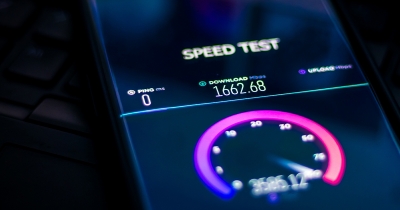In this blog post, we'll look in-depth at how AI has revolutionized PC gaming, transforming it from a simple pastime to an interactive experience for tech-savvy gamers everywhere.
Introduction to AI in PC Gaming
AI, or Artificial Intelligence, has become an integral part of the PC gaming landscape. Think of AI as the unseen conductor, orchestrating the delicate dance of elements that make up your favorite games. Whether it's creating adaptive and challenging enemies, generating responsive and immersive worlds, or even simulating realistic physics, AI is at the core of these processes.
Its ubiquity in PC gaming is such that it might be more challenging to find a modern game that doesn't utilize some form of AI. The journey of AI in gaming is a fascinating one, having moved from basic pathfinding algorithms and predictable patterns to increasingly sophisticated and dynamic systems.
The Evolution of AI in Gaming
From the early days, when AI was mostly limited to simple pathfinding algorithms and predictable enemy patterns, we've seen it evolve into an essential tool that breathes life into gaming experiences. AI opponents have gone from following the same set path and strategy repeatedly in games like 'Pac-Man' to learning and adapting to players' behavior in real-time in contemporary games.
What's more fascinating is the AI's integration into strategy-based games like blackjack. By understanding the mechanics of how to play blackjack, modern AI systems can enhance the gaming experience, creating a more realistic, challenging, and exciting environment. They can analyze a player's tactics, learn from them, and apply strategies that force the player to think and adapt in real time, just as they would in an actual game of blackjack. This level of sophistication and realism has transformed gaming from a casual pastime into an immersive experience, blurring the lines between the virtual and real worlds.
Real-world Applications of AI in PC Gaming
One of the most popular applications of AI in PC games is the creation of dynamic and adaptable worlds. An excellent example is in the game 'No Man's Sky,' where AI algorithms procedurally generate a universe filled with planets that players can explore. Each of these planets is unique, with its flora, fauna, and even weather patterns all designed by AI. Another notable example is the 'Forza Horizon' series, which uses a Drivatar system.
This AI system observes how a player drives — analyzing their speed, braking, and aggressiveness — then uses this data to create an AI driver that behaves like the player. It allows gamers to race against 'ghost' versions of their friends, even offline. These are just a couple of examples of how AI is being used in creative and innovative ways across the PC gaming industry.
Conclusion
The impact of Artificial Intelligence on PC gaming is profound - greater than many of us could have anticipated. It's moved beyond a simple tool for creating more challenging enemies to a key component in building more engaging, dynamic, and immersive player experiences. From procedurally generated worlds to 'ghost' opponents that mimic a player's driving style, AI is transforming the landscape of PC gaming.
As we move forward, we can only expect this trend to continue, with AI playing an even greater role in the development of games and the shaping of player experiences. While we can't predict exactly where the technology will take us, one thing is clear: the future of PC gaming is undeniably intertwined with the future of AI.






